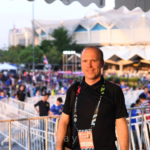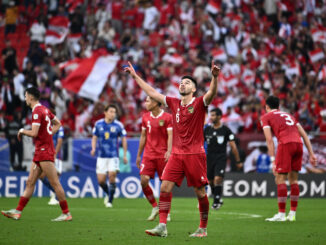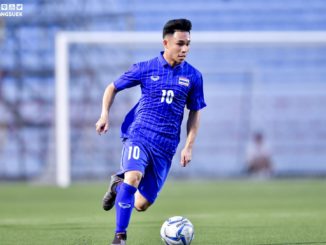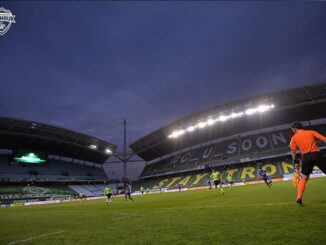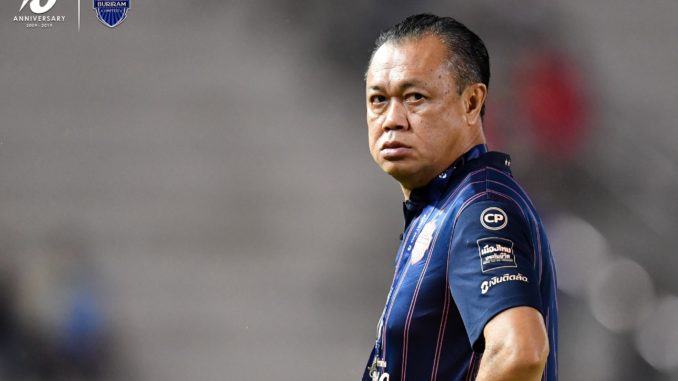
As the 2019 Thai League season approached a thrilling climax, a well-known media outlet highlighted the three-horse race the battle for the title had become.
With Buriram United, Chiang Rai United and Port FC all in contention, a promotional poster projected images of the three contenders. But there was something very unusual about the chosen pictures. They did not show three of the stars of the teams and nor did they feature the head coaches. Instead, the club presidents took centre stage.
A strange move in many cultures, but apparently perfectly normal in Thailand. A Dutch academic can begin to explain why.
Renowned social psychologist Geert Hofstede developed the influential cultural dimensions theory to facilitate a deeper insight into cross-cultural communication.
While the theory has its critics, these dimensions have helped shine a light on some of the specific behaviours that can be expected in particular countries.
Thailand, like many East Asian countries, scores high on the Power Distance dimension, which suggests a hierarchical society in which it is accepted that there is an unequal distribution of power.
In such cultures, it is suggested that “Each rank has its privileges and employees show loyalty, respect and deference for their superiors in return for protection and guidance. This may lead to paternalistic management.”
This brings to mind the style of Buriram United’s chairman, benefactor and all-round big boss – not just of the football club, but of the province of Buriram as a whole.
In other cultures, it is often said that no one is bigger than the club. At Buriram United, it can legitimately be argued that Newin Chidchob is the club.
The 61-year-old can routinely be seen barking motivational instructions in the team huddle before matches, taking selfies with fans or paternally cuddling his players in consolation or celebration.
The deference shown to Newin is absolute and his aura gives him a level of power and control at Buriram United that cannot be challenged.
Whether or not it is healthy to have such a dominant figure at a club is certainly debatable but the history of Buriram United provides useful context.
When the Thai Premier League opened up to the rest of the country in 2007, Buriram remained just another northeastern province.
Sitting east of the vast expanse of Nakhon Ratchasima and beneath the more well-known Khon Kaen to the north, it had relative anonymity within the country as a whole.
While northeastern neighbours Udon Thani, Ubon Ratchathani, Khon Kaen and Nakhon Ratchasima were known as the ‘Big 4’ provinces of the region, Buriram flew under the radar of most.
However, a certain local politician was determined to change that, and he made football the foundation on which to build the Buriram of the future.
As in the world of politics, it took a bit of wheeling and dealing to make his vision a reality, but it did not take long.
The most successful club in Thailand began life as Provincial Electric Authority (PEA). After a brief relocation to Ayutthaya to the north of Bangkok, the club won the Thai Premier League in their new home.
Unfortunately for new fans of the club, its future lay elsewhere. After just two years in Ayutthaya, Newin moved the new entity to his own province and branded them Buriram PEA.
As well as working on the playing side, Newin secured a site on the edge of town where the Thunder Castle stadium would be built. It would soon become the biggest purpose-built football stadium in the country with an initial capacity of 24,000, before expansion increased it to 32,600 by 2014.
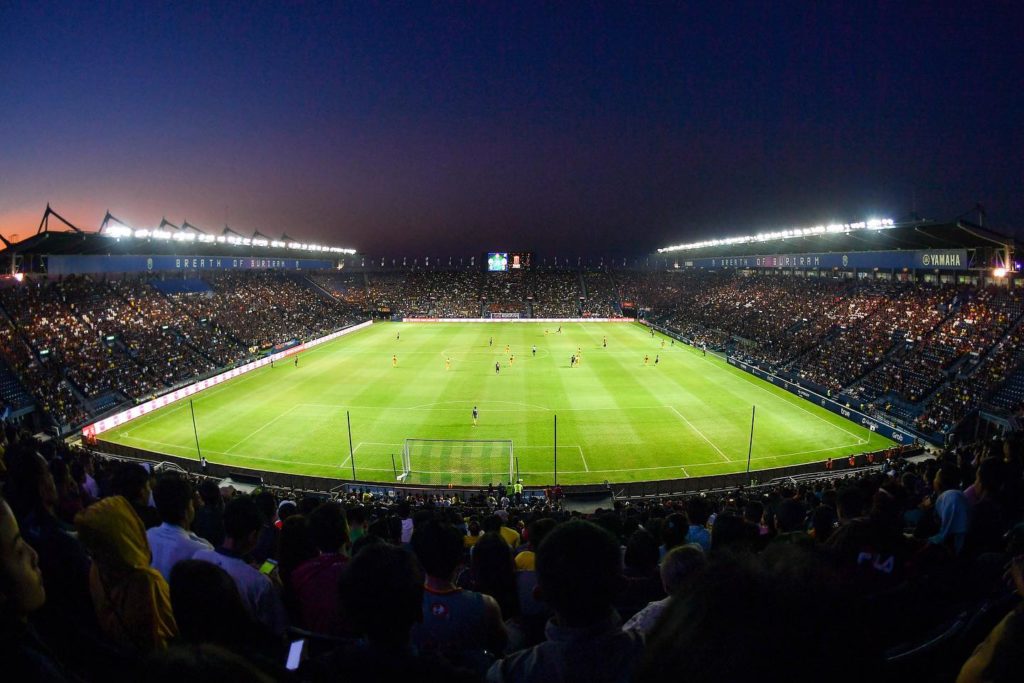
While other teams were struggling to maintain leases and support in stadia owned by municipal governments, Buriram’s bold ambition stood out, and in a country that admires status and symbols of success, Buriram soon drew fans from all over.
However, that required success and it did not take long for the football team to deliver. After finishing runners-up to Muangthong United in the 2010 Thai Premier League, the top Thai coach of the time, Attaphol Buspakom, led Buriram PEA to the domestic treble in 2011.
Like the construction of their new stadium, it was another bold statement as they lost just once on their way to finishing 16 points ahead of nearest challengers Muangthong.
This was the early stages in a rivalry between these two clubs that would become increasingly intense and bitter in the years to come. In 2011, Buriram took four points from six in the fixtures between the two sides and this was to become a pattern and crucial to the club’s dominance.
With things on track on-the-field, there were also interesting developments off it as it was announced that a football-themed 4-star hotel would open next to the stadium, further evidence of the forward-thinking approach that had taken them this far.
While the hotel was no doubt intended to cater to football tourists, it was also located with the new motor racing circuit that was under construction nearby very much in mind.
Buriram had a winning team on the pitch and there were exciting developments for the club and the town as a whole.
Newin proclaimed his ambition to make Buriram United among the top five clubs in Asia. Despite making it to the last eight of the top club competition in the continent, this still seems a distant hope given the overall level of the Thai League in comparison with those in countries like Japan, South Korea, and China within the East Asia section, not to mention some of the heavyweight clubs in West Asia.
But Newin has never been one for setting his sights low and it would be an unimaginable loss of face for someone of his profile to publicly back down on such ambitions plans.
Of course, the concept of face is key to someone in power and relationships that threaten a loss of face can be damaged irreparably. When a head coach or foreign signing are not performing at the required level, they are ruthlessly dealt with.
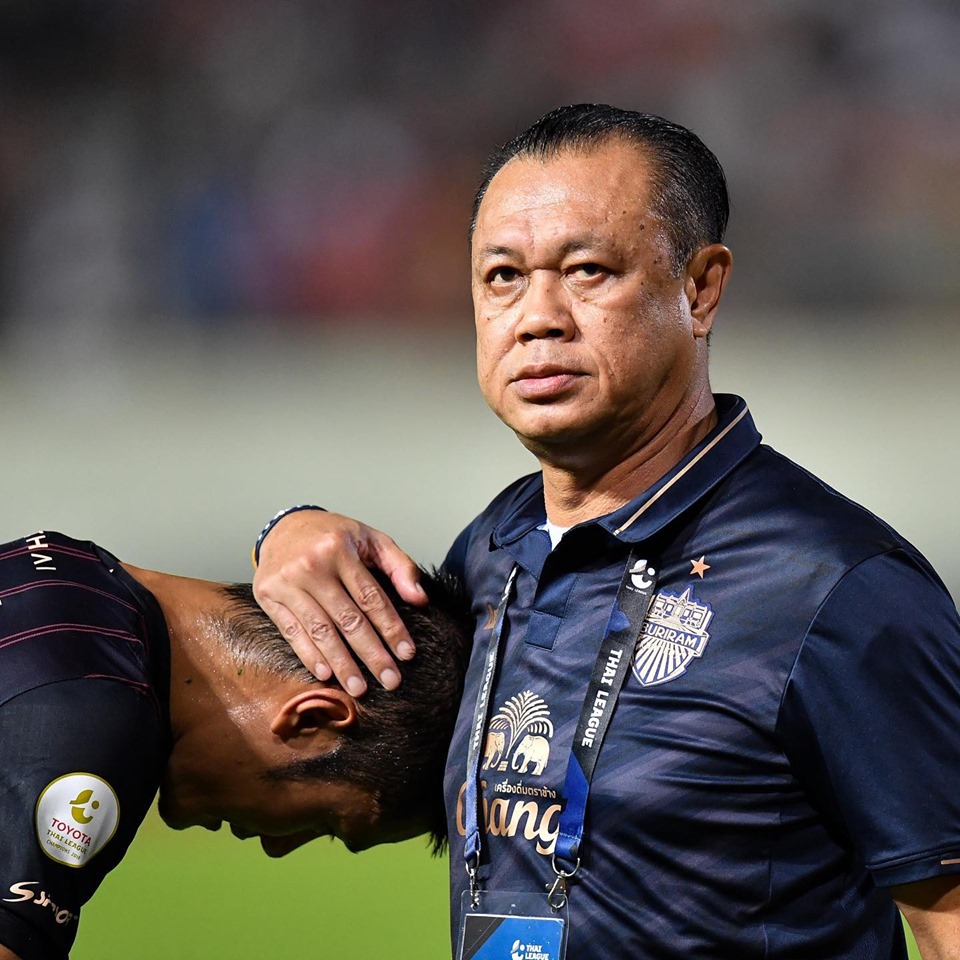
Alexandre Gama guided Buriram to the 2014 Thai League title and the domestic treble in 2015 – a year in which they were desperately unlucky not to reach the last 16 of the AFC Champions League, having finished in a three-way tie on 10 points alongside Gamba Osaka and Seongnam FC.
Early in 2016, Gama was sacked following an extremely poor start to the season, which had much to do with the serious injury suffered by star striker Diogo Luis Santo.
Gama’s predecessor and current incumbent Bozidar Bandovic also found himself out of a job despite performing a solid job after taking over from Alejandro Menendez in April 2014.
However, Newin did welcome Bandovic back into the fold as technical director in 2017 before the Montenegrin took over from Ranko Popovic in June of the same year.
While he may flex his muscles from time to time, Newin can still maintain relationships that allow people a way back into the club.
But a high-profile example of his unwillingness to let a perceived insult pass came when Theerathon Bunmathan requested a move. Things became so strained that Theerathon was eventually allowed to head for bitter rivals Muangthong United where he soon enjoyed a title win at Buriram’s expense in 2016.
It took three years for Theerathon to be forgiven, but the body language in the much publicised embrace between the two suggested it was very much an errant child who had gone to seek forgiveness.
In an era in which players supposedly have the power, the Buriram chairman does not let his prized assets go without a fight and he seems particularly fatherly towards the likes of Supachai Jaided, Supachok Sarachat and Suphanat Mueanta in the current squad. If clubs from Japan wish to take any of these youngsters to the J.League, it will be interesting to see how Newin responds.
When Theerathon forced his move, it ended in a grudge. The Yokohoma F.Marinos full-back had shown a lack of loyalty and deference and incurred the wrath of his superior.
The paternal management style may have its roots in Thai culture, but it may pose problems for Thai football.
Not only does Newin take the team talk, but he also sits on the bench, in close proximity to the head coach.
This is not purely a Buriram phenomenon. Port FC’s chairwoman Nualphan Lamsam – Madame Pang – has adopted many of Newin’s traits in her transformation from wealthy heiress to a designer-clad maternal presence who bear hugs sweaty footballers in the manner of her Buriram counterpart.
Like Newin, Madame Pang’s presence looms large at the club, even if she did not play such a prominent role in its development and history. Port were around long before Pang arrived in 2015, but her investment has raised the club to new heights that have seen them eclipse rivals Muangthong United for the past two years, while also pushing Chiang Rai United and Buriram all the way in this year’s title race.
Also like Newin, Pang comes from a political background and it is widely believed that her involvement in football will end when she decides to go back into politics.
A further similarity comes in the overbearing presence of the 53-year-old on the Port bench. She is the focal point of many of the camera shots that appear on the club’s social media accounts as she gets involved in the pre-match huddles and gets worked up alongside the other coaching staff at games.
Her arrival and departure on matchdays see her driven in and out of the stadium in a Bentley surrounded by a security presence not far from Bangkok’s most famous slum community of Klong Toey.
While Pang may not have built a stadium and put a whole city on the map in the manner of Newin, she has helped to make Port one of the top sides in Thailand by providing the necessary investment. For that, she has apparently earned the ‘loyalty, respect and deference’ of the fans.
Concerns arise, however, when it is suspected that the chairmen get too involved in certain decisions without the necessary footballing background.
Port had started the 2018 season solidly enough under Jadet Meelarp but a slight dip in form prompted the club to turn to Kiatisuk Senamuang – the more photogenic golden boy of Thai football. On the pitch, it turned out to be a disastrous appointment and Jadet soon returned.
It was widely assumed that Kiatisuk’s appointment had been driven more by attracting publicity than enhancing performance on the pitch.
Interference of the wrong kind from club chairmen has long been an issue in the country and the overbearing micro-management that is a result of sitting on the bench may make taking a job in Thailand less attractive for those who want the autonomy to make a difference on their own terms.
Christian Ziege’s spell as Ratchaburi head coach ended by ‘mutual consent’ after just two games, but it was widely believed that he did not appreciate the input of ‘team manager’ Tanawat Nitikarnchana – the son of the club president – who joins the coaching staff on the touchline in each game.
Many of those in power at Thai clubs just can’t keep their influence limited to providing investment and overseeing operations. They hunger publicity and clearly believe their financial input gives them the right to take the plaudits.
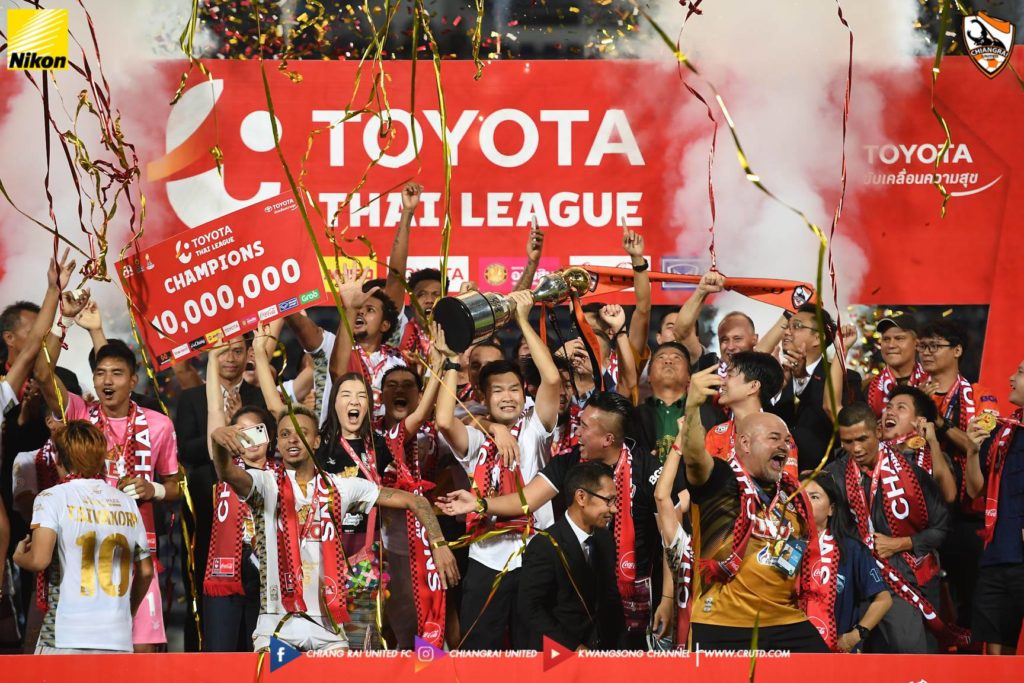
Much of this is transparent PR that doubles up with their political ambitions. Miti Tiyapairat has just celebrated a triumph as president of Thai League champions Chiang Rai United but had also been Secretary-General of the Thai Raksa Chart political party before it was disqualified from this year’s general election.
While his profile had been lower than some of his counterparts, Miti demonstrated his fondness for the spotlight when he stole the club captain Phitiwat Sukjithammakul’s moment of glory by being the one to accept the trophy.
There are many quirky features about Thai football and the presence of many club presidents who aspire to be bigger names than the players is certainly one of them. Such individuals go into football not simply as a business decision or for the love of the game. They see it as a means to gaining popularity among the fan base and attracting positive publicity. The media respond by showing deference and promoting them.
In many countries, club owners and major shareholders stay well away from the operations at their football club, attending matches occasionally, if at all. In Thailand, the approach is so much more hands-on that they sometimes overshadow the real stars – the players.
Photos: Buriram United Facebook, Port FC Facebook, Chiang Rai United Facebook
Listen to Miti Tiyapairat on Episode 44 of The Asian Game podcast

